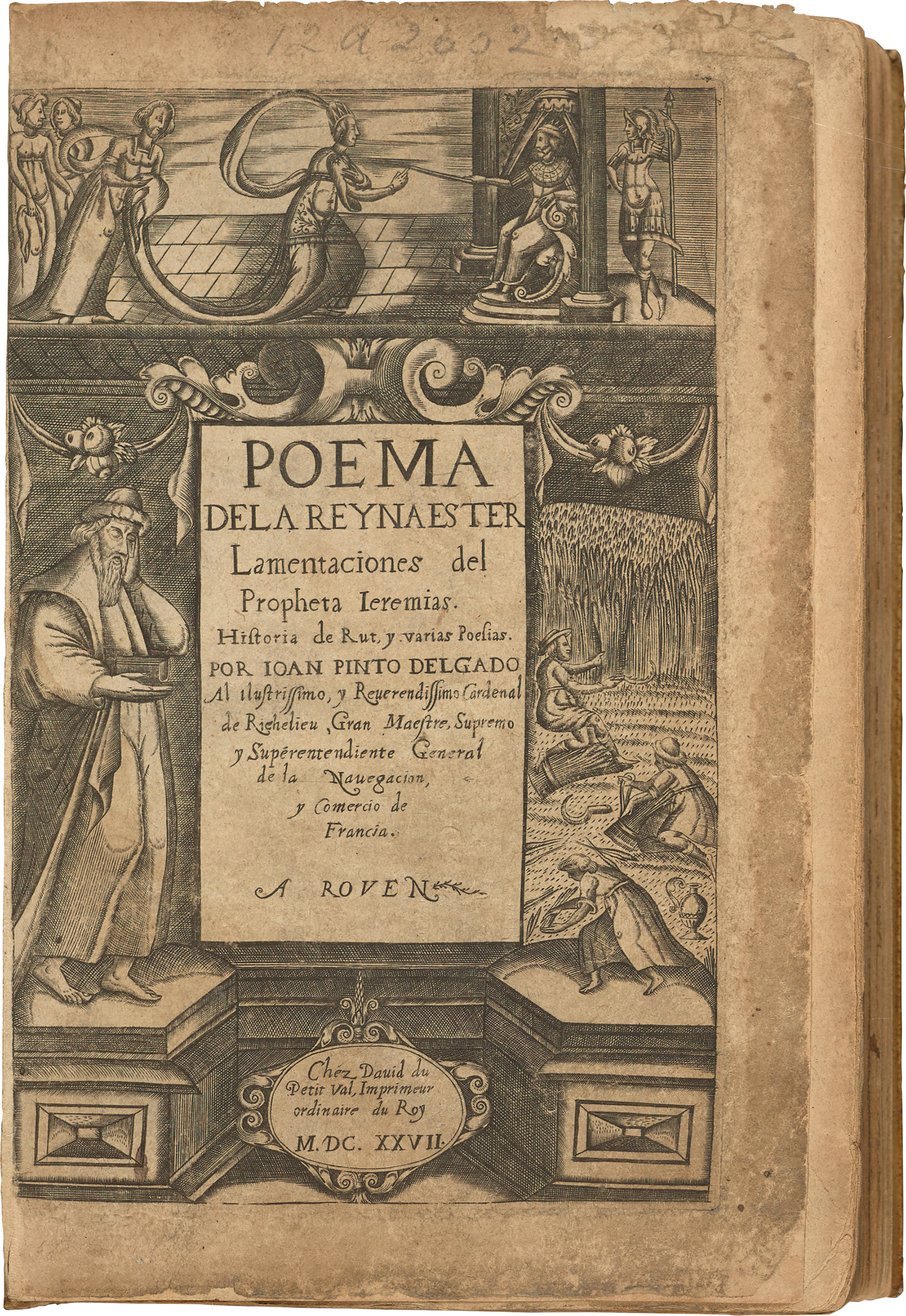The Converso poet João Pinto Delgado (Portimão 1580–Amsterdam 1653) dedicated his Poema de la Reina Ester; Lamentaciones del profeta Jeremías; Historia de Rut y varias poesías (Rouen: David du Petit Val, 1627) to Cardinal Richelieu (1585–1642). In the preface to this collection of mostly biblical verses written during his French exile, Pinto Delgado gave two reasons for offering the book to King Louis XIII's almighty minister. On the one hand, Richelieu acted like "the most generous spirits" by protecting strangers ("amparar a los peregrinos") like him and encouraging them to serve their hosting Princes through their military or literary skills ("unos por armas, y otros por letras"). The hospitality of the "holy Patriarchs" of the Bible was mentioned by the Converso poet as the archetype of Richelieu's praiseworthy behavior. On the other hand, his particular way of doing politics ("de ser peregrino en todas sus acciones") revealed that he was an outstanding minister. Knowing how to navigate the "ship" of the State like a "skilled pilot" and the army as "a wise captain", France's solid foundations relied on Richelieu's virtues. Arousing fear among enemies, respect of friends and commitment of the vassals, Cardinal Richelieu was the embodiment of the perfect political leader. Employing a set of political concepts and metaphors widespread by Jean Bodin's Les Six livres de la République (The Six Books of the Republic. 1576), Pinto Delgado saluted Richelieu for "winning that love" of the subjects vis-a-vis their sovereign "which perpetuates kingdoms."
Pinto Delgado reminded that the books of Ester and Ruth, as well as the Lamentations of Jeremiah, showed how fragile are human beings. Living on earth as perpetual "wanderers" ("peregrinos"), the safe haven he personally found in Richelieu's France ("allando yo un Puerto seguro, refugio de más naufragios") along with many other Conversos exiles who fled the Iberian Inquisitions and the exclusion of the "laws of purity of blood", deserved to be publicly acknowledged and praised. At the same time, by depicting the Cardinal Richelieu in such a way, Pinto Delgado was implicitly acting as a sophisticated Converso political thinker: showing that Richelieu's model of combining Catholic religion, absolutistic political penchants and a minimal dose of freedom of conscience was a preferable alternative to the Iberian confessional intolerant and centrifugal model in a broader Converso phenomenon of political agency I called: "Marrano in Richelieu's garb."
